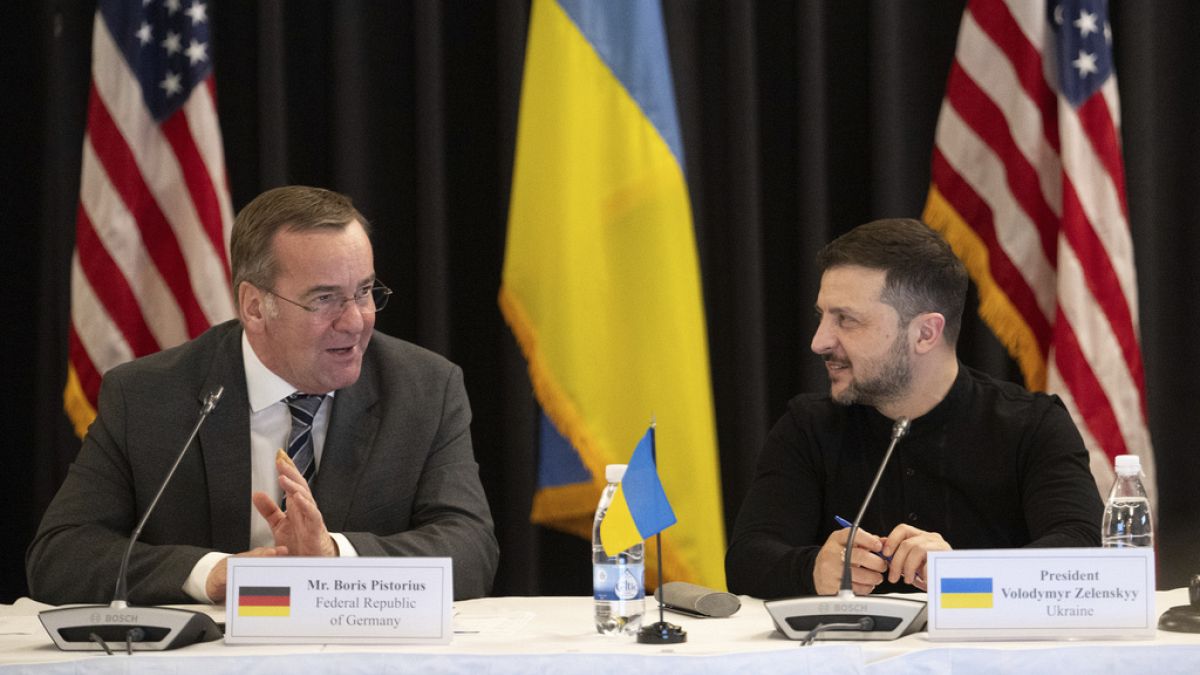Prime Minister Giorgia Meloni has pledged to “relaunch” Italy’s relations with China at the start of an official visit to the country that follows her dramatic decision last year to pull out of Beijing’s Belt and Road Initiative.
Meloni met China’s premier Li Qiang on Sunday at the start of a five-day trip she said was a “demonstration of the will to begin a new phase, to relaunch our bilateral co-operation” after the turbulence.
But Meloni later told an Italy-China business forum in Beijing that strengthening economic ties would require efforts to “make the trade relationship more fair and beneficial to all”.
“Obviously we cannot hide the problem of a major imbalance with an important deficit for Italy,” she told executives at the forum, citing the need for improved access to the Chinese market and stronger protection for intellectual property.
Meloni and Li signed a three-year “action plan” to increase industrial co-operation and a deal on food safety. The Italian premier is scheduled to meet President Xi Jinping on Monday.
Li, China’s second-ranked leader, hosted a welcoming ceremony for Meloni at the Great Hall of the People. However, he later warned her that “protectionism cannot protect competitiveness”.
“It is hoped that the EU will look at China’s development objectively and . . . deepen dialogue and co-operation,” state news agency Xinhua quoted him as saying.
Meloni is keen to minimise the fallout from Rome’s withdrawal from the BRI, a $1tn global infrastructure investment scheme that Italy joined in 2019 to the chagrin of the US and other western allies.
Meloni herself had publicly criticised then-prime minister Giuseppe Conte’s decision to sign up to Xi’s initiative as a “mistake”, and her government formally notified Beijing it wanted to pull out of the programme in December.
Many Italian companies still fear Beijing could retaliate for the decision, though Rome tried to limit the damage by carefully choreographing a low-key exit in which Meloni emphasised Italy’s determination to maintain “mutually beneficial” relations.
“We need to preserve our relationship with China, given that the economic sustainability of Italian exports is dependent on the quality of relations with China,” said Giuliano Noci of Politecnico di Milano’s School of Management.
“This visit has an economic importance for Italy,” he added. “It is to say that, it’s true that we exited from the BRI, but we recognise China’s specific status, and we aim to nurture a strategic dialogue.” “
Michele Geraci, a former Italian government official who championed Rome’s joining the BRI in 2019, said Beijing would also probably be keen to leave recent setbacks behind.
“China’s goal will be to pretend that everything is smooth,” he said. “They have no great interest in highlighting that Italy exited the BRI. They don’t like it, but they don’t want to make a big fuss.”
Shortly before Meloni’s arrival, the Global Times, a Chinese Communist party newspaper, blamed Washington for Italy’s BRI exit and said economic and trade ties remained strong.
“Italy’s withdrawal from the BRI was not due to a reluctance to co-operate with China or Meloni’s own political beliefs, but rather due to the huge pressure from the US and other major Western powers at the time,” the newspaper cited an analyst as saying.
Beijing is keen to court European governments to exploit any differences between them and the US over issues ranging from Ukraine to trade and export controls.
Cui Hongjian, an analyst at China Institute of International Studies Research institute, said Beijing would also probably raise Italy’s support for EU tariffs on Chinese electric vehicles.
But its main priority would be to stabilise ties in the face of geopolitical uncertainties, including those stemming from the US election. China would tell the Italian side “we need some more resilience in the relationship”, Cui said.
Yet Meloni herself has always viewed China warily, accusing it of unfair trade practices and warning of a potential risk to Europe from over-dependence on Chinese companies in strategic supply chains.
“It is vital that our partners are genuinely co-operative, that they play by the rules to ensure that every company can operate in international markets on a level playing field,” she told the business forum on Sunday.
As a youth minister in the government of late prime minister Silvio Berlusconi, she urged Italian athletes to boycott the opening ceremony of the 2008 Beijing Olympics in protest at China’s human rights record, especially in Tibet.
More recently, her government invoked national security concerns to strip China’s Sinochem of its influence as the largest shareholder in Italian tyremaker Pirelli. Italy also supports the imposition of steep EU tariffs on China’s electric vehicles.
During Meloni’s visit, the countries are marking the 700th anniversary of the death of Italian explorer Marco Polo and bilateral trade that was worth €66.8bn last year, albeit tilted heavily in favour of Beijing.
But Geraci said the trip was unlikely to result in much substance. “There is a strong belief in the Chinese government that she is not in favour of doing business with China,” he said.
Additional reporting by Giuliana Ricozzi in Rome.
























